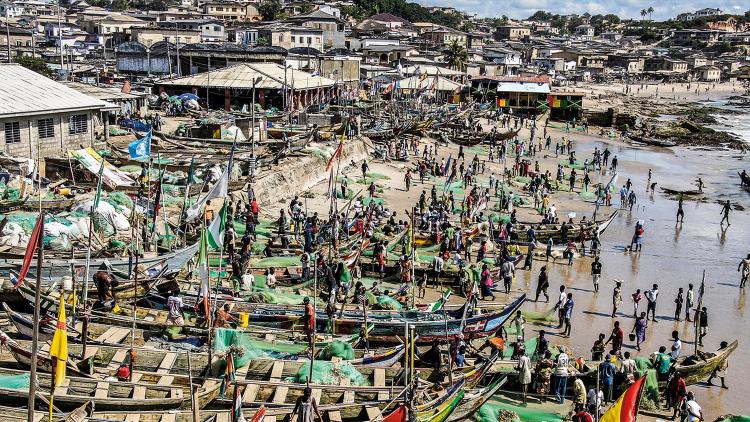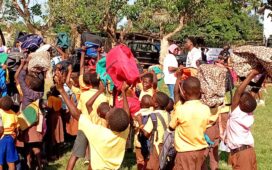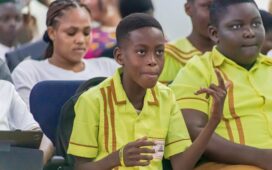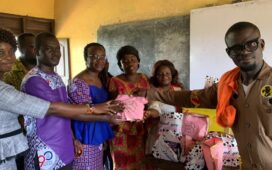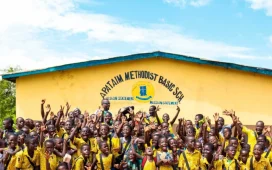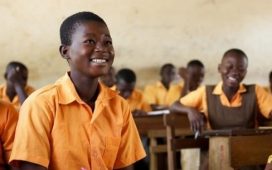My day starts at 5am. School starts at 7.20am, but before I can get ready, eat breakfast or prepare lessons for the day ahead, I have to walk to the Volta River to collect water. Where I live in Dorfor Adidome, we don’t have any running water in our homes – the river is our closest source.
Dorfor Adidome is about an hour’s walk to my school, Volo Community Senior High School (SHS) in northern Tongu, Ghana. Instead of walking, I ride a motorcycle in. The journey there and back is quick but hazardous. In the dry season, the unsurfaced roads become a dust bowl. Trucks and cars speed by and I have to navigate the pot holes through thick clouds of orange dust. During the heaviest rainy season from April to July (we have two rainy seasons in Ghana), it is difficult to ride to school because of the torrential, tropical downpours. The roads become slippery and dangerous but I always manage to get to work.
I teach integrated science which is a combination of biology, chemistry, physics and agriculture. It is a privilege to serve as a guide, mentor and role model to the students. Knowing that I am impacting the next generation of young people who will transform their communities motivates me to do more.
The students come from all over the district. Some of them walk for hours to get to school. Many cross the river in a canoe (without a life jacket) just to get to class every morning. Most of the students arrive extremely tired.
The high levels of poverty in the region makes life very difficult for the girls and boys that I teach. Some of the boys live alone, but most live with their parents. Unemployment is high and they are forced to become the main breadwinner. The second year of senior high is not covered by the Ghanaian government’s “Free Senior High School” policy, so children have to work after school and during weekends and holidays in order to get enough money to pay their school fees.
The boys work as motorbike-taxi drivers, a profession known in Ghana as Okada riding. They ferry passengers on their motorcycles to nearby towns and villages; rides cost between 15-70 pence depending on the distance and they earn commission from the amount of money they make.
Many of the girls I teach are teenage mothers. They work hard to take care of themselves, their parents and their babies. Some of the girls are petty traders selling fish, oranges and other fruit. As a result, they regularly miss school on market day (Friday) which has a detrimental effect on their schooling.
If the government is serious about getting more children into school, they need to support families in rural areas. Children in the countryside need mentorship opportunities, guidance and financial support to encourage them to stay on at school.
The Ghanaian government has invested at least 20 percent of GDP to education annually over the last decade, but it’s not enough. We need to have more reproductive health education programmes in rural schools. And new mums who drop out of school must be encouraged to return to their studies.
Many of my students are passionate about making a difference. They look to a future beyond their location and present situation. They are poised to succeed no matter what life throws at them and are motivated to shape their own futures.
The teenage mothers and the Okada riders who will stop at nothing to get an education constantly inspire me. They are confident, determined young people who understand the importance of education and the benefits it brings. My job is to motivate, encourage and support them to stay on at school.
Kenneth Gyamerah is an integrated science teacher at Volo Community Senior High School in Ghana, and is a Theirworld Global Youth Ambassador

